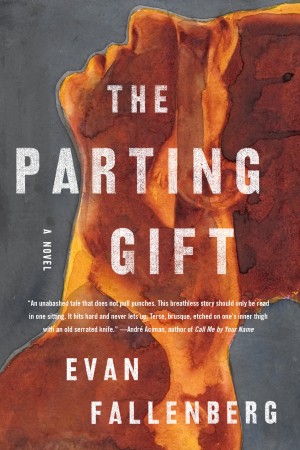Rarely does one come across a debut novel as artistically accomplished, politically unsettling, and emotionally unflinching as Moriel Rothman-Zecher’s Sadness Is A White Bird. A richly empathic story of Israel and Palestine, history and memory, explored through the intimate bonds between young Jewish and Muslim Israelis, it offers all that one could wish for in a coming-of-age story. By turns humorous, joyful, melancholy, erotic, and tragic, the author’s luminous prose consistently delivers the crucial element of convincing detail.
Though it begins and ends in a military prison cell, that bleak framing device actually contains an ebullient and unpredictable series of events. When teenage Jonathan moves back to Israel with his family after years of living in the United States, he settles in happily with his Jewish high school friends until a chance encounter with Nimreen and Laith — a twin girl and boy who happen to be Palestinian Israelis — transforms his life irreparably. The three form a utopian bond, hitchhike from one end of the country to the other, share intimate secrets, smoke pot, and gradually fall in love with one another. Jonathan’s sexual fluidity is conveyed matter-of-factly and perhaps that very indeterminacy spurs him to commit other transgressions, including loosening the chains of his grandfather’s sacrosanct ideology.
As for Nimreen and Laith, readers well-versed in Israeli literature might wonder whether Rothman-Zecher intended to send a salvo across the generations by evoking the mysterious twins who preoccupied the secret desires of Hannah Gonen, the unstable narrator of Amos Oz’s canonical 1968 novel My Michael. (He insists no.) In any case, far more than figments of subconscious desire, these siblings spring to life on the page, as memorably complex as Jonathan himself. This being Israel, the three inevitably argue passionately about politics and identity; their raw and testy exchanges about painful realities and misperceptions of the “other” constitute some of the novel’s most gripping moments. Yet, for a time, their shared intimacy seems indestructible. However, the twins bitterly recoil when Jonathan decides to join the Paratroopers, a decision partly inspired by his family’s own wounded history in Salonica, partly by his desire to prove himself in a country that places a supreme value on military service. He pretends that nothing will change but of course everything does: “My soldier dream was the fourth member of our group, following the three of us wherever we went.” While a vital source of the novel’s verisimilitude is its intense exploration of the tender solidarity (and poignant illusions) of young soldiers training for combat, Sadness Is A White Bird adamantly overturns the popular image of the Israeli Defense Forces as the world’s most moral, humane army. Rothman-Zecher has little patience for the corrosive culture of hypocrisy steadily nurtured by the military occupation. But if this novel doesn’t shy from taking a principled opposition to Israel’s occupation of the Palestinian territories, there is never a moment that strays into sanctimony, nor do polemics overshadow its sheer artistry as storytelling.
Without imposing a false symmetry, Sadness memorably juxtaposes two family tragedies; one concerns the killing of the brother of Jonathan’s grandfather in Nazi-occupied Greece, the other the cold-blooded murder of Nimreen and Laith’s grandfather by soldiers in 1956. Inevitably, these distant horrors intrude on the present. After a brief sojourn in Salonica, Jonathan emerges grimly determined to overcome his earlier ambivalences. If once he entertained a naïve fantasy of raising mixed Jewish-Arab children with Nimreen, he now aspires only “to move straight ahead, from my people’s past into my people’s future, my family’s future. I was done zigzagging into the pasts and presents of other peoples, other families.” The damage Jonathan’s sudden turn inflicts on both those he loves and on his own increasingly fragile psyche is devastating. Yet ultimately someone else pays a far heavier price.
Rothman-Zecher is an accomplished poet and his lyricism often shines, as when he portrays the hormonal rush of the young narrator anticipating seeing his friends: “I could almost hear the watery murmur of the bong, almost feel the static crackle of potential collisions, between tongues and palms and slender bodies.” The author’s intense admiration for other poetic witnesses to the Middle East’s harsh realities (including Yehuda Amichai), and a haunting homage to the verse of Palestine’s “unofficial national poet” Mahmoud Darwish is delicately interwoven throughout, beginning with the novel’s very title. And that deep attunement to language’s inherent poetry is also evident in his insistent intermingling of Arabic and Hebrew in both their lyrical and slangy forms; the result is a vibrant collage of cultures and a happily immersive experience for readers.
Rothman-Zecher is hardly the first writer to recognize that “otherness” is the most seductive spice in all the Middle East, nor is he the first to explore a “Romeo and Juliet” narrative between Jews and Arabs. (Just last year, Dorit Rabinyan’s All the Rivers aroused the ire of Israel’s political Right and was banned by the Ministry of Education for portraying intimate relations between a Jewish woman and a Palestinian man.) But Sadness Is A White Bird may be the most artful and irresistible exploration of “illicit” love in the Holy Land since A.B. Yehoshua’s beloved 1977 novel The Lover. At once a celebration of youth and love, and a lamentation for the daunting odds of sustaining either in the tragic circumstances of the Middle East, this novel of inconvenient truths is a triumph of the aesthetic and moral imagination, one that will likely leave its readers (one can only hope that many Israelis and Palestinians will be among them) feeling unsettled and perhaps utterly transformed.
Ranen Omer-Sherman is the JHFE Endowed Chair in Judaic Studies at the University of Louisville, author of several books and editor of Amos Oz: The Legacy of a Writer in Israel and Beyond.






